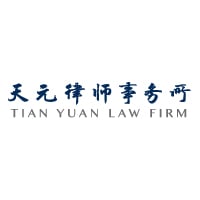

General counsel | Sina Group



Haiyan Gu
General counsel | Sina Group
Team size: 60
How do you approach managing legal aspects during periods of instability or crises to ensure the organization’s resilience?
First of all, conduct a thorough risk assessment to identify key risks and potential legal issues that could arise from the crises. Determine which risks pose the greatest threat to the organisation and they should be prioritised when addressing them.
Maintain open lines of communication with leadership or management to ensure efficient inner resource and coordinate closely with external legal advisors to leverage their expertise solving risks.
Continuously monitor changes in laws and regulations that may affect the organisation, especially during a crisis, and implement more strict compliance measures to avoid legal penalties and reputational damage in the special period.
It is also necessary to establish a special incentive mechanism in times of crises to counter the pressure from cost considerations, improve team cohesion and ensure there is no brain drain as much as possible.
What are the main projects that you have been involved in recently?
Recently, we have mainly been focusing on the digitalisation and intelligent reform of our internal work mechanisms, which refers to the use of modern information technology, especially artificial intelligence (AI), big data analysis and other technologies, to optimize the process of legal work, improve work efficiency, and strengthen risk prevention and control capabilities.
We explored multiple areas and making effective progress with the support of the technology department, which include digital document management, including intelligent contract review, legal knowledge graphs, automated compliance monitoring and copyright protection with block chain, etc.
What are some of the main trends impacting the industry sector you work in in China?
Being in the Internet industry, I believe that digitalisation and intelligence are the two major trends that have the greatest impact on China’s internet industry. Specifically,digitalisation makes it possible to collect, store and analyse massive data, which promotes the transformation of Internet companies from traditional advertising models to personalized recommendation and precision marketing based on big data analysis. The application of intelligent technologies such as AI and machine learning has further enhanced the user experience.
Digitalisation and intelligence created many new jobs but also led to the replacement of some low-skill jobs, prompting the labor market to transform to high-skill, high-knowledge-intensive, and placing higher requirements on the skills of practitioners.
With the widespread collection and exploitation of personal data, data security and privacy protection are becoming major issues. The government and enterprises need to establish a sound data protection mechanism to protect the rights and interests of users while promoting digitalization and intelligence. In order to adapt to the new changes, the governments should issue a series of laws and regulations to strengthen the supervision of the Internet industry, involving data security, network security, e-commerce, personal information protection and other aspects, to guide the healthy development of the industry.
Do you use any ‘legal tech’ products, and if so, for which areas of your work do you find them most useful?
As I mentioned above, we have really focused on the digitalisation and intelligence of legal work recently. We have used various kinds of ‘legal tech’ products on the market before, each with its own strengths and weaknesses. However, considering the confidentiality of legal work and related data and information, we ultimately decided to develop our own ‘legal tech’ product and indeed achieved some practical accomplishments.
The first product is the SINA contract review assistant. With a number of functions such as wording detection, amount proofreading, key terms prompt, it’s helpful to reduce the labor costs of contract reviewing and improve work efficiency.
Weibo Personal Information Protection Impact Assessment System (Weibo PIA), through which the data compliance officer can initiate personal information protection impact assessment and online/offline data processing activities compliance assessment, view personal information protection impact assessment list, generate assessment reports, and risks monitoring, etc., to intervene in a timely manner.